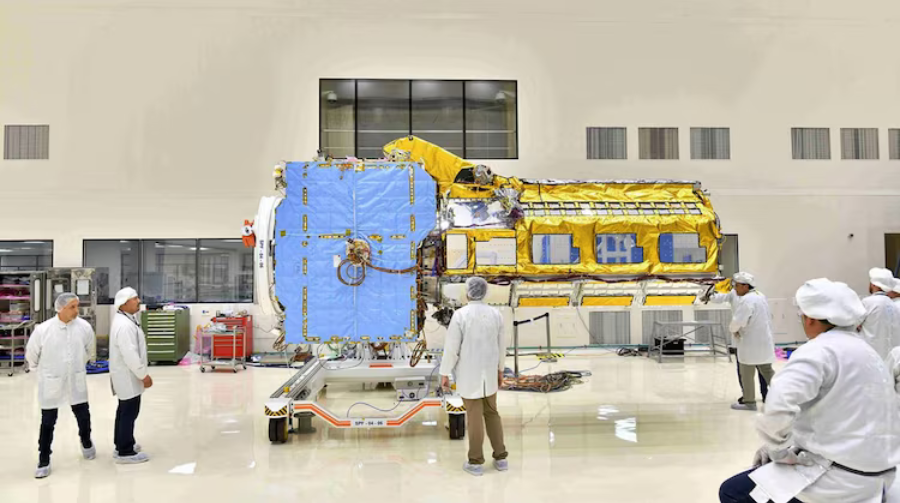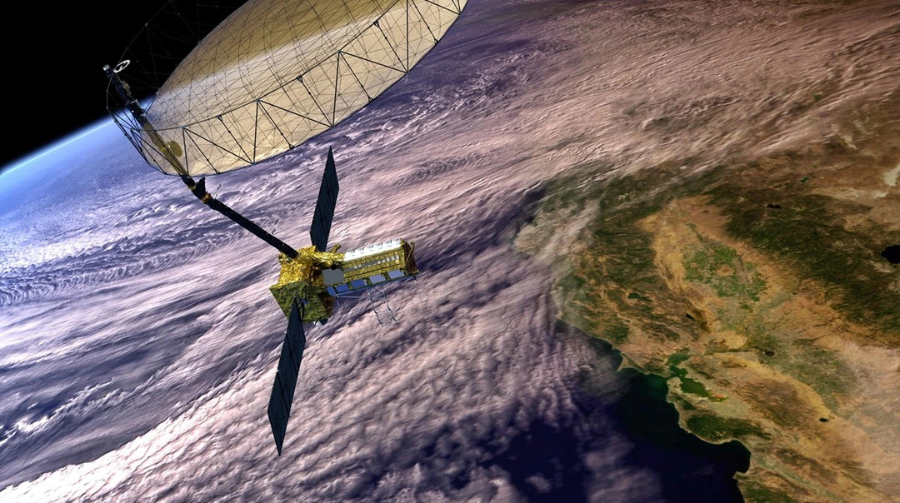Tech
Tech Job Market Shifts in 2025: AI Integration, Role Realignment & Reskilling Surge

AI Is Reshaping Roles, Not Eliminating Jobs
- Code generation & “vibe coding”: AI tools like GitHub Copilot and ChatGPT now assist in code writing via prompt-based interfaces—popularly dubbed “vibe coding”
- Entry-level job evolution: LinkedIn co-founder Reid Hoffman predicts AI will mainly reshape, not erase, entry roles—requiring workers to supplement AI with critical thinking
- Complementarity over substitution: Academic studies show AI boosts demand for complementary skills—digital literacy, teamwork, resilience—with the complementary effect outweighing substitution by ~50%

Demand Surges for AI, ML & Data Talent
- Boom in India: The Indian AI job market is set to grow 20% in 2025, with high demand for cloud, security, and AI roles; professionals in cloud (DevOps, AWS) command 10% higher pay
- Global hiring trends: LinkedIn reports industries across regions scrambling to fill ML engineers, AI product leads, and data scientist roles
- Salary rise in AI roles: In the U.S., median AI-related salaries rose to ~$157k in Q1 2025, with ML engineer jobs growing 41.8% YoY

Loyalty Pays More Than Job Hopping
- Wage growth trends: For the first time since 2009, workers who stayed with their existing employers saw median wage growth of 4.3%, topping the 4.1% for job-switchers—reflecting employer caution amid economic uncertainty

Workforce Reductions & Structural Changes
- Entry-level threats: Telecom giant BT plans to automate 10,000 roles by end of decade—and more as AI capabilities expand
- Layoffs continue: AI-driven restructuring and post-pandemic corrections are still driving layoffs across IT firms .

Upskilling & Skill-Based Hiring Take Center Stage
- Skill-over-degree trend: Employers increasingly prioritize AI skills. Those listings requiring formal degrees dropped 15%, while AI skill premiums rose higher than degree premiums
- Training initiatives: Australia finds only 1% of tech grads “work-ready.” Industry certifications like Azure AI Fundamentals significantly boost employability
Tech
OnePlus Nord 5, Nord CE5 & Buds 4 Launched in India: Full Details Inside

OnePlus has officially launched the Nord 5, Nord CE5, and Buds 4 in India on July 8, 2025, expanding its popular Nord lineup. With powerful specs, flagship features at mid-range prices, and AI enhancements, these new products are set to reshape the budget premium segment.

OnePlus Nord 5: Key Specifications & Features
- Processor: Snapdragon 8s Gen 3
- Display: 6.74-inch 120Hz AMOLED panel
- Camera: 50MP Sony IMX890 sensor, 8MP ultra-wide, 2MP macro
- Battery: 5,000mAh with 80W fast charging
- OS: OxygenOS 15 based on Android 15
- AI Features: “AI Plus Mind” for dynamic optimization, smart battery usage, and camera enhancements
- New Addition: Plus Key for quick access shortcuts (AI assistant, apps, routines)

OnePlus Nord CE5: Affordable Innovation
- Processor: Snapdragon 6 Gen 2
- Display: 6.59-inch 90Hz AMOLED
- Camera: 64MP triple rear setup
- Battery: 5,000mAh with 67W SUPERVOOC charging
- Build: Slim and lightweight with 3.5mm jack retained
- Perfect For: Students, casual gamers, and value-seekers

OnePlus Buds 4: Premium Sound Meets AI
- Audio: Dual drivers for high-res audio
- Noise Cancellation: 48dB Hybrid ANC
- Battery Life: Up to 40 hours with case
- AI Integration: Adaptive EQ, spatial audio, and voice-enhancing mic tech
- Design: Sleek, metallic finish with customizable touch controls
AI-Driven Features Across the Lineup
OnePlus is focusing heavily on AI in 2025:
- AI Plus Mind: Custom UI behavior, smoother gaming, adaptive brightness
- Camera AI: Real-time enhancement, object tracking, and low-light magic
- Battery AI: App prediction & energy saving modes based on habits

Pricing & Availability in India
| Product | Price (INR) | Availability |
|---|---|---|
| Nord 5 (8GB/128GB) | ₹29,999 | Amazon, OnePlus.in |
| Nord CE5 (6GB/128GB) | ₹21,499 | Amazon, retail stores |
| Buds 4 | ₹5,499 | Online & offline |
Tech
Amazon sets 30‑day relocation deadline for corporate staff—opt out by resigning in 60 days

Amazon has issued a firm directive to thousands of its corporate employees: relocate to one of its designated office hubs—Seattle, Arlington, or Washington D.C.—within 30 days or resign within 60, forfeiting any severance package

What’s changing—and why
- Mandatory hub model: The directive requires employees based in remote or satellite offices to move into one of the three major metropolitan areas.
- Tight timeline: Staff must decide within 30 days whether to relocate or start their resignation process within the next 60 days—with no severance safety net .
- Strategic pushback: The move supports Amazon’s new push for greater office presence and collaboration, reinforcing a broader return-to-office mandate.

In the context of layoffs and AI
- Lingering job insecurity: This relocation edict comes amid ongoing concerns about workforce reductions tied to the company’s shift toward AI-driven operations
- Internal warnings: CEO Andy Jassy has cautioned employees about potential upcoming layoffs, intensifying uncertainty and stress across the organization

Employee reactions & wider implications
Feedback on platforms like Reddit’s r/amazonemployees signals deep unease:
Amazon already doing it under the name of PIP”
“The people were notified on 3/12 that their last day ‘employed’ is 5/12. Amazon keeps them employed for the 60 days the WARN Act requires
Employees worry the policy might mask layoffs, using “performance improvement plans” (PIPs) as a pretext under the guise of relocation compliance.
Tech
In a Historic Lift-Off, NASA-ISRO Launch $1.5B NISAR Satellite to Track Earth’s Movements

What is the NISAR Satellite?
NISAR (NASA–ISRO Synthetic Aperture Radar) is the world’s first dual-frequency radar imaging satellite. Developed jointly by NASA and ISRO, this satellite is designed to study Earth’s dynamic surfaces in unprecedented detail.
Costing nearly $1.5 billion, NISAR is one of the most expensive and advanced Earth-observation missions ever launched.

NASA + ISRO: A Global Collaboration
- NASA contributed the L-band radar, payload electronics, and a high-speed communication subsystem.
- ISRO developed the S-band radar, the satellite bus, launch vehicle (GSLV Mk II), and the mission control.
- This partnership is a testament to growing Indo-U.S. space cooperation.

What Will NISAR Do?
NISAR will observe:
- Earthquakes and tectonic shifts
- Landslides and volcanoes
- Forest biomass and carbon stock
- Glacier movements and sea-level changes
- Floods, droughts, and water cycle variations
With its global revisit capability every 12 days, NISAR will track environmental changes in near real time, helping policymakers and researchers across the globe.

Launch Details and Timeline
- Launch Site: Satish Dhawan Space Centre, Sriharikota
- Launch Date: June 18, 2025
- Rocket: GSLV Mk II
- Orbit: Sun-synchronous low Earth orbit (747 km altitude)
- Operational Life: 3 years minimum; data will be archived for decades

-

 News1 month ago
News1 month agoEx-Cricketer Shikhar Dhawan Buys Ultra-Luxury Apartment Worth ₹69 Crore in Gurugram
-

 News1 month ago
News1 month agoIndia offers zero-for-zero tariffs on auto parts, steel from US
-

 Sports2 months ago
Sports2 months agoIPL 2025 Suspended: IPL suspended for only this many days? BCCI told when the tournament will start again!
-

 News2 months ago
News2 months agoOperation Sindoor Live Updates: Pakistan used Turkey-made drones to target 26 locations, military sites in north India
-

 News1 month ago
News1 month agoDefence Minister Rajnath Singh Arrives In Srinagar, To Review Overall Security Situation In J&K
-

 Sports1 month ago
Sports1 month agoWho will replace Virat Kohli at No. 4 for India in Test cricket?
-

 News2 months ago
News2 months ago24 airports shut, airlines issue travel advisories amid tensions between India-Pakistan
-

 Sports1 month ago
Sports1 month ago‘Will Remember Tears You Never Showed’: Anushka Sharma’s Emotional Tribute On Virat Kohli’s Retirement




